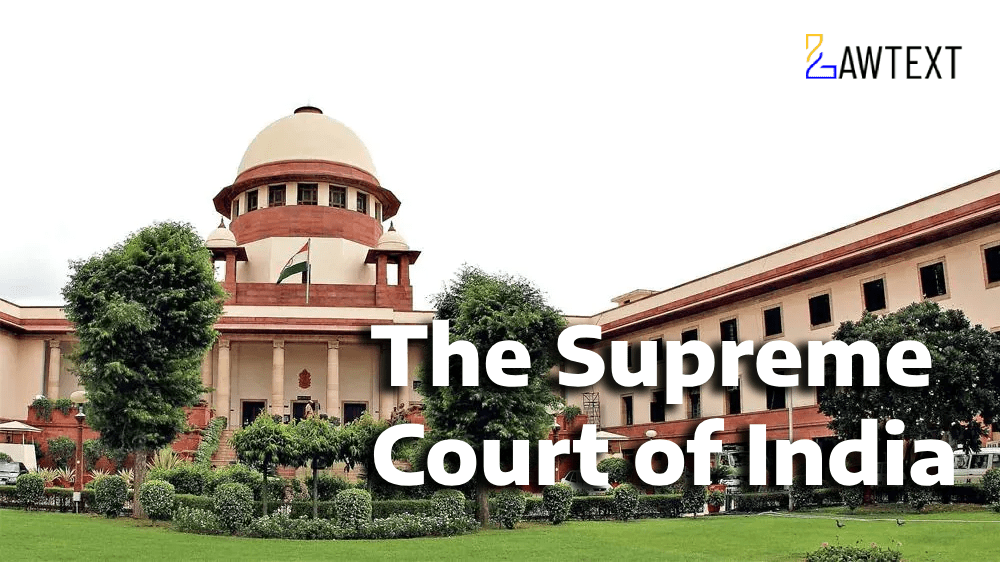CASE NOTE & SUMMARY
The constitutional validity of Section 17(5)(d) of the Central Goods and Services Tax (CGST) Act, 2017, concerning the denial of Input Tax Credit (ITC) on goods and services used for the construction of immovable property intended for renting or leasing. The Court considered several civil appeals and writ petitions, primarily from companies engaged in the construction of shopping malls, which sought ITC against GST paid during construction. The key issue revolved around the interpretation and application of Section 17(5)(d) and whether the provision violates constitutional rights under Articles 14 and 19(1)(g).
1. Factual Background (Paras 1-5)
- Respondents' Case: The first respondent, engaged in constructing a shopping mall for leasing purposes, accumulated an ITC of over ₹34 crores on goods and services used for construction. However, Section 17(5)(d) of the CGST Act restricted ITC on immovable property construction.
- Legal Issue: The respondent approached the Orissa High Court seeking a declaration that Section 17(5)(d) does not apply to their case or alternatively that the section is unconstitutional.
2. High Court's Judgment (Para 4)
- The Orissa High Court held that Section 17(5)(d) should be read down to allow ITC, as denying it would defeat the purpose of ITC under GST. It ruled in favor of the respondent, allowing ITC on GST paid for the mall's construction.
3. Assessee's Submissions (Paras 6-9)
- Key Arguments: The assessees contended that clauses (c) and (d) of Section 17(5) violate Articles 14, 19(1)(g), and 300A of the Constitution as they irrationally differentiate between builders who lease properties and those who sell.
- Demand for ITC: They argued that denying ITC leads to a cascading effect of tax, contradicting the purpose of GST to eliminate double taxation.
4. Revenue's Submissions (Paras 14-16)
- Defending the Provision: The Revenue defended the restriction, arguing that ITC is a statutory right, not a constitutional one, and the denial of ITC was rationally based on the nature of immovable property construction.
- Constitutional Validity: They contended that the classification in Section 17(5)(d) had a clear nexus with the objective of avoiding tax breaks where there is a break in the credit chain.
Ratio Decidendi:
The Supreme Court upheld the constitutional validity of Section 17(5)(d) of the CGST Act. The Court ruled that the denial of ITC on the construction of immovable property intended for renting or leasing is not violative of Articles 14 or 19(1)(g). The Court emphasized that ITC is a statutory right and the provision does not create an unreasonable classification. The legislative intent behind this restriction was to prevent a break in the credit chain, justifying the differential treatment.
Acts and Sections Discussed:
- Central Goods and Services Tax Act, 2017
- Section 17(5)(d): Denies ITC on goods and services used in the construction of immovable property (except plant and machinery).
- Articles 14 and 19(1)(g) of the Constitution: Right to equality and right to practice any profession or trade.
Subjects:
GST, Input Tax Credit, Immovable Property, Constitutional Law, Taxation, CGST Act
Citation: 2024 LawText (SC) (10) 37
Case Number: CIVIL APPEAL NO. 2948 OF 2023 With WRIT PETITION (CIVIL) NOS. 804 of 2022 & 1030 of 2022 CIVIL APPEAL NO. 2949 OF 2023 WRIT PETITION (CIVIL) NOS. 1036 of 2022 & 90 of 2023 WRIT PETITION (CIVIL) NO. 846 of 2023 and WRIT PETITION (CIVIL) NO. 847 of 2023
Date of Decision: 2024-10-03
Case Title: Chief Commissioner of Central Goods and Service Tax & Ors. Versus M/s Safari Retreats Private Ltd. & Ors.
Before Judge: (Abhay S Oka J. , Sanjay Karol J.)
Appellant: Chief Commissioner of Central Goods and Service Tax & Ors.
Respondent: M/s Safari Retreats Private Ltd. & Ors.

